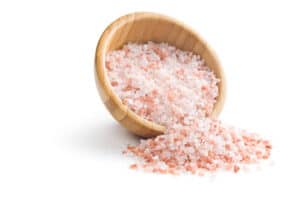
Have you ever noticed a connection between certain foods and the onset of your migraines? Do you know which specific foods seem to trigger them? When a migraine is looming, do you crave or avoid certain types of food? Have you experimented with specific dietary changes to see if they impact the frequency or intensity of your migraines? Or did you not know that there are certain food additives or preservatives that can also trigger your migraine?
Many patients who look for migraine relief in Vancouver, WA report triggers linked to food and diet. But did you know that some people use Himalayan salt to counter migraines? Yes, you read that right, salt, but not just any type of salt, something different from your regular table salt. Himalayan salt is rich in calcium, magnesium, potassium, sodium, and other minerals.
If you experience migraines and have explored non-pharmaceutical relief options, you might have encountered information suggesting that consuming salt water made with Himalayan salt, sometimes with added lemon juice, can be beneficial for migraine relief.
This may be tied to a significant migraine trigger: dehydration. Himalayan salt is often promoted as a solution in salt water for alleviating headaches. Insufficient water intake, coupled with the likelihood that a migraine episode may lead to a loss of appetite and vomiting, can result in dehydration and a shortage of essential fluids and electrolytes, including sodium.
For those who have experienced the need for emergency room intervention during a migraine attack, it's a familiar scenario: the initial step often involves the administration of intravenous (IV) fluids – a combination of water, salt, and glucose.
Apart from dehydration and other dietary triggers, many patients are unaware that upper cervical misalignments contribute to migraines. These misalignments, often caused by accidents, injuries, or poor posture, can disrupt the upper cervical spine's balance and alignment. The best solution to restore proper alignment and balance to this area is NUCCA. If you need clarification on whether this method fits you, visit our office, and we will help assess your upper cervical spine.



